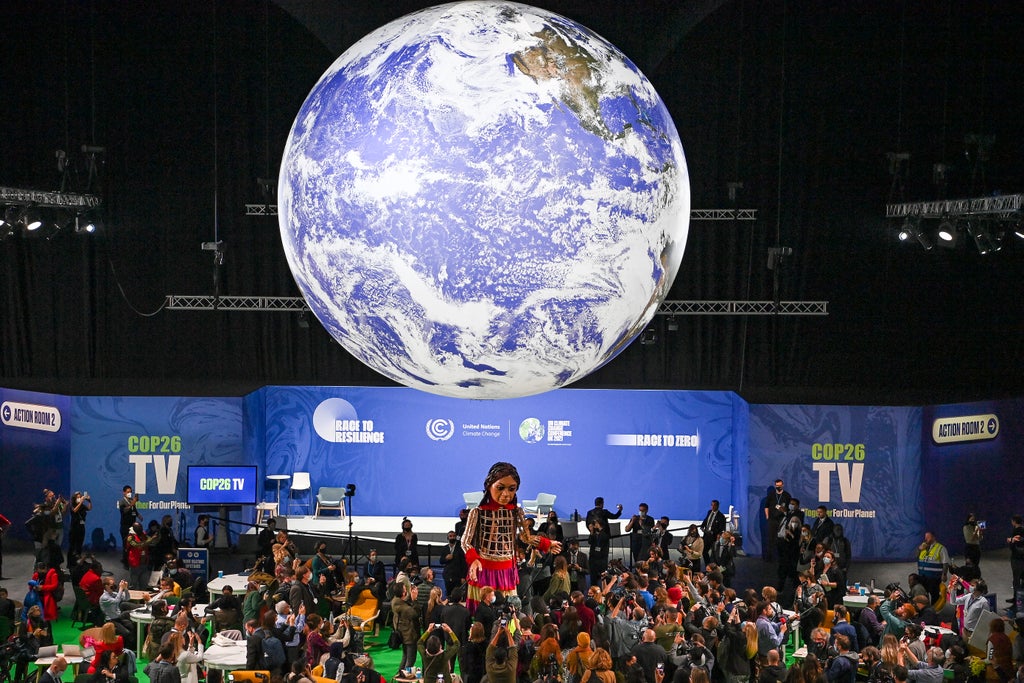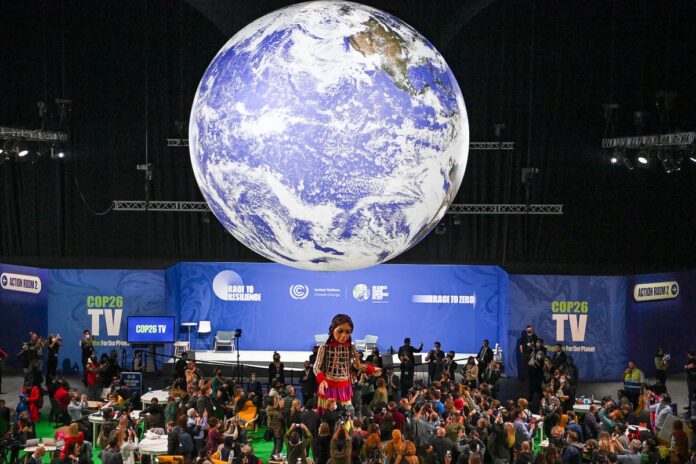[ad_1]

A draft “cover decision” setting out the potential outcome from the Cop26 climate summit has been published by the UK presidency of the talks.
The document urges countries to “revisit and strengthen” their domestic climate pledges for 2030 by the end of next year to try to give the world a better chance of limiting global heating to 1.5C above pre-industrial levels, the aspiration of the Paris Agreement.
It says that meeting the 1.5C aspiration needs meaningful and effective action in “this critical decade”.
It comes after a stark analysis published on Tuesday warned that, even when pledges agreed at the Glasgow summit are taken into consideration, global greenhouse as emissions in 2030 are likely to be twice as high as what would be needed to meet the 1.5C target.
Keeping temperatures at 1.5C could be vital for stemming further increases in extreme heat, sea level rise and the fast disappearance of the world’s tropical coral reefs, among other issues.
The document, published in the early hours of Wednesday, calls for countries to accelerate the phasing-out of coal and subsidies for fossil fuels. If this language is kept in the final Glasgow pact, it would set a new precedent as previous UN climate agreements have not specifically targetted fossil fuels.
It also says that developed countries should at least double the amount they spend on helping poorer nations adapt to escalating climate impacts, as part of scaling money for poorer nations to tackle the crisis.
Country ministers are expected to be in contact with their leaders to discuss what their position on the proposals will be. This will particularly be the case for countries whose leaders did not attend the world leaders’ summit, such as China and Russia.
On Tuesday, UK minister and Cop president Alok Sharma said there was still a “mountain to climb” before negotiations reach a conclusion.
Prime minister Boris Johnson is returning to the summit today ahead of the final few days of crucial negotiations.
Negotiators are also trying to reach consensus on the final parts of the rulebook for the landmark Paris Agreement.
Delegates are also discussing the issue of how to aid countries who are already experience “loss and damage” as a result of the climate crisis. These conversations have been bolstered by scientific evidence showing that the climate crisis is already making extreme weather events more severe and likely.
As negotiations carry on, delegates will also turn their attention to fossil-fuelled cars and planes this Wednesday on “transport day”.
The UK government announced that 24 countries had agreed to “work towards” ensuring all new cars and vans sold are zero emissions by “2040 or earlier”.
The new pact also includes six major car manufacturers, including GM, Ford, Mercedes, BYD, Volvo and JLR. However, Volkswagen and Toyota, the world’s two largest manufacturers, did not agree to sign the pledge.
[ad_2]
Source link













